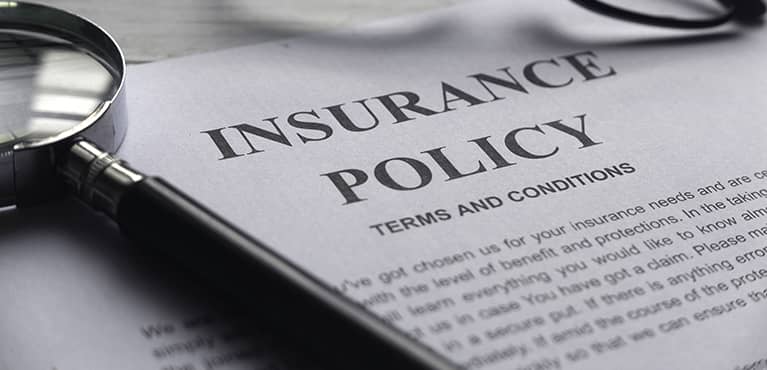Table of Contents
Table of Contents


Key Takeaways
- Life insurance policies can pay off your mortgage, allowing your loved ones to stay home without financial burden.
- Life insurance includes term life, a set period, and permanent life, providing lifelong coverage with options like whole and universal life insurance.
- Determining how much life insurance you need involves analyzing current expenses, debts, and income, best done with a financial professional.
- Life insurance costs vary, with many choosing affordable term life insurance for its flexible coverage periods.
- Mortgage insurance pays off your mortgage to the bank, while life insurance provides a death benefit to your chosen beneficiary for various expenses.
What makes a house a home? Some would say that a house is not a home until it is filled with family and other loved ones.
Of course, you want to protect your home and the people within it — and life insurance could help by providing mortgage protection through a death benefit.
How Does Life Insurance Protect a Mortgage?
All life insurance plans are designed to help fill financial gaps that would open up if the primary provider passed away unexpectedly. Life insurance provides money to cover immediate and future expenses, which could include paying off your mortgage. This would allow your family to continue living in the home you created together. While all life insurance policies pay a death benefit to the beneficiary — money that could be used to pay the mortgage — there are many other variables to consider when it comes to choosing the right policy for your needs.
Which Types of Life Insurance Can Help Protect Your Mortgage?
Term Life Insurance
A term life insurance policy offers protection for a set period, such as 10, 15, 20 or 30 years, as long as you pay the fixed premium. Depending on when you purchase a term life policy, it could offer protection for the period in your life when you have the most household expenses for your family. Also, many people choose term life insurance to coincide with the length of their mortgage payoff.
Permanent Life Insurance
A permanent life insurance policy offers protection for your whole life and comes in many variations. One is whole life insurance, which remains in place with a guaranteed premium as long as you continue making payments. A whole life policy also builds tax-deferred cash value.
If you would also like the flexibility to adjust your premium and death benefit as your life circumstances change, while still building tax-deferred cash value, universal life insurance could be a good choice. For example, let's say you decide later in life that you want to invest in a business or more real estate — or you want to leave a large gift to a charitable organization in your will — universal life could give you the flexibility you want in raising the policy benefit to cover these additional outlays.
How Much Life Insurance Do You Need?
You might now be asking: How much life insurance coverage is enough? Choosing the right amount of money is based on current expenses, income, and other factors. Consider speaking with a financial representative who could help you run the numbers and decide on the right coverage amount for your needs.
Plan ahead with life insurance that can help protect your family home. Get a Free Life Insurance Quote
How Much Does Life Insurance for a Mortgage Cost?
While whole life and universal life insurance can be used to help pay mortgage expenses, many people choose term life insurance instead because it is often the most affordable option. Plus, term life allows you to choose the length of your coverage based on how many years you have left on your mortgage. For example, if you have 20 years remaining on your mortgage, you can select a 20-year term life policy, which can be less expensive than buying a whole or universal life policy, which require you to make premium payments for the rest of your life rather than just 20 years.
You also may want to consider whether you want a traditional term life policy that offers your family one lump sum or decreasing term life insurance that provides your loved ones with monthly payouts for the life of the policy. With a decreasing term life insurance policy, your coverage decreases monthly until the last 5 years of the policy, and your premiums are guaranteed to never increase. While pricing varies based on your coverage amount, policy term and underwriting results, here are a couple of examples to illustrate:
- A 30-year-old male could ensure monthly payouts of $2,500 for 30 years (with a starting coverage of $900,000) for as little as $39 per month.
- A 45-year-old female could ensure monthly payouts of $3,000 for 20 years (with a starting coverage of $720,000) for as little as $44 per month.
Video Transcript
Hi! Bill Diehl here at Western & Southern Financial Group and today we're going to talk about a concept called mortgage needs and how a life insurance policy may play a role with your mortgage.
You heard that right: life insurance and mortgages. What's the deal?
Why would anyone put life insurance and a mortgage into the same sentence? Well, life insurance can actually play a role in your mortgage strategy.
Here's what I mean: say you bought that home of your dreams and like most people, you didn't have all that money sitting around under your mattress.
At least I hope you didn't.
So, you took out a mortgage which is basically a loan that is used to purchase real estate.
Now depending on the terms of your mortgage and the amount you put down on your home, your lender may have required you to carry mortgage insurance to protect them.
If you were to default and stop making payments for any reason, know what I said them because mortgage insurance protects the bank.
But what about you how are your loved ones protected?
Here's where life insurance comes in: if a breadwinner were to die a life insurance policy could potentially help loved ones stay in the family residence.
Life insurance pays an immediate death benefit as soon as proof of death of the insured person is furnished to the insurance company. Death benefit proceeds are paid to the beneficiaries generally free from income taxes and probate.
And while these proceeds can be used for anything in the case of a mortgage protection strategy, they're used to help keep paying off the mortgage thus allowing the surviving family to remain in their home.
So that's the deal: life insurance and mortgages can coexist and if you're interested in learning more about how life insurance may play a role in your mortgage strategy, talk to a financial professional.
They'll review your needs with you and help you make an informed decision.
Hey, thanks for watching today! If you like this video, please be sure to tap the like button below and subscribe to this channel.
What is Mortgage Insurance?
Mortgage insurance is a type of insurance that protects lenders in the event that a borrower defaults on their mortgage payments. The loan is designed to reduce the risk to the lender by providing compensation for any losses if the borrower is unable to repay.
There are two main types of mortgage insurance:
- Private Mortgage Insurance (PMI): This happens when the borrower puts less than 20% of the home's purchase price down on the loan, protecting the lender by covering a percentage of the outstanding loan sum. Monthly mortgage payments are increased to include the cost of PMI.
- Mortgage Insurance Premium (MIP): MIP is a type of insurance needed for some loans guaranteed by the government, like FHA (Federal Housing Administration) loans. It protects the lender against losses in case the borrower defaults on the loan. MIP may be paid upfront at the time of loan closing as a one-time charge or as part of the borrower's recurring monthly mortgage payments.
It's important to note that mortgage insurance primarily benefits the lender with added security and mitigates their risk. It does not protect the borrower in case of default but allows borrowers to obtain a mortgage with a lower down payment.
Mortgage Insurance vs. Life Insurance
Even if you have mortgage insurance through your bank or mortgage loan, you could still need life insurance. That's because bank mortgage protection only provides mortgage payoff, and the beneficiary of that policy is usually the bank that would receive the funds.
The death benefit received from your life insurance policy could pay more than just the mortgage. It could help pay immediate expenses and provide mortgage protection. It could also help your loved ones repay debts, cover education costs and more. You may even be able to replace the bank mortgage insurance policy with one purchased from a life insurance company, which would let you choose your beneficiary.
A life insurance policy could provide mortgage protection and help keep your loved ones where they belong: at home. Think about building a strong financial foundation for your family and their future.
Help ensure your mortgage is covered with our comprehensive life insurance. Get a Free Life Insurance Quote







































